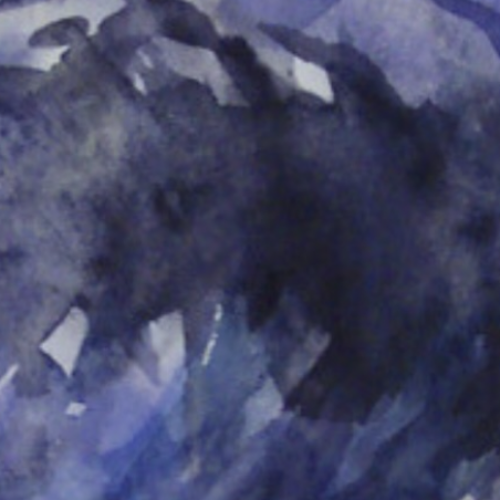Nine months after Isabelle’s husband left, Isabelle lay on her rumpled bedspread, feeling a rattling in her stomach, like a marble inside her. She drew a hand across her belly protectively and tried to think of what might satisfy the feeling; some toast and jam to start, perhaps. She counted the clattering as a good sign her appetite was finally returning and got up. But with the first bite, the rattling only grew.
In the first days after the split, Isabelle’s therapist had warned her about surfacing her feelings too quickly. She’d promised her that with time, her appetite would return. So, Isabelle distracted herself. After reading or watching TV for most of the day, she would have a bite for dinner and then sleep. Isabelle’s favorite time, day or night, was some ten minutes after her dose of Ambien, sometimes two. Then she would read until her body could no longer resist, until her head and heart and limbs screamed for sleep, right up to the last possible moment she could bear it. And only then would she tumble into an instant slumber.
When the toast with jam and coffee failed to satisfy, Isabelle rummaged in the kitchen for something else. She whispered to herself, “What is it then, inside me,” and then, “Come out, you little thing.”
Perhaps it was a hallucination, a remnant of the Ambien from the night before, but she felt a stirring within her like a baby might turn in the womb.
The rattling inside her grew. Then, it welled up like a sob or laugh. As she willed it forward, the way a mother does when she goes into labor, Isabelle began to shake from the inside. She glanced sideways into a mirror hanging on her wall and watched as one spindly leg protruded from her mouth, then two. She sprinted to the bathroom and heaved. Onto the tile floor tumbled an eight-legged creature, brown, smooth and delicate, a spider the size of a newborn baby, covered in mucus like one too. The gnawing emptiness that had been inside her was now outside.
On fresh and nervous legs, the spider crawled to her bedroom, past the little corner where Isabelle had imagined a crib might go someday, leaving a trail of mucus behind it. As Isabelle peeked in from the hallway, she saw it had stretched its mouth over one corner of the bed, the way a snake’s mouth engulfs a rodent, and soon had grown large enough to swallow it completely. Next, it devoured a dresser, a mirror, three dried-out succulents from the windowsill, a bookshelf, and a taped-up box of photo albums. Isabelle sighed with relief when her belongings disappeared—they reminded her of him, after all—and more than that, the spider was not after her. In fact, she swore she could feel its thoughts. It was not malicious, just hungry.
Still, it was better to be out of the way. So Isabelle descended the stairs and left her apartment building, still in the same tights, sweatshirt, and slippers she had been wearing for over a week.
Once outside, the spider devoured the entire apartment building, leaving a scar on the sidewalk a half-block long. A jagged floor remained where the building had been; a plush carpet, a dog bowl, dishes. Although Isabelle knew she should mourn the people who’d been inside, she felt only the same empty numbness inside her.
“Where does the emptiness come from?” Isabelle had asked her therapist months before. Her therapist smiled nervously and said, “Goodness, my degree is in social work.”
The spider lifted its delicate brown legs in a trot and headed for the neighborhood pool beside Isabelle’s former building, pressed its mouth to the water, and slurped. Isabelle remembered spending June lying in bed, staring at the sunlight sneaking onto her bedsheets in light fingers, summer and swimming going on without her.
Isabelle turned then to the spider and asked, “Aren’t you going to swallow me too?”
By now, the spider had grown so large she couldn’t see the top of it unless it bent down, so she was really speaking to one joint of a skinny leg. She longed for the thing to open its mouth and take her inside; to experience the nothingness of its belly; to occupy it as it had occupied her.
Isabelle grew hopeful she would be scooped into its warm mouth and vanish. Instead, the spider knelt down and peered from its eight shiny eyes. When they locked with hers, Isabelle noticed a resemblance to her own brown irises. It was a creature knitted in the deepest recesses of her lonely heart. She was its mother, and it did not want to eat her. That’s what the look meant.
The spider went on without her. As Isabelle watched, it devoured the whole neighborhood, then the city. Office buildings crumbled, the skyline shifted, the shadows of the city cleared, and Isabelle saw the entire sky and hills in the distance. Isabelle watched the spider’s silhouette tearing and feasting on the hills, leaving a flat, scarred landscape everywhere and a whipping wind with nothing but Isabelle to catch on.
The spider went on to eat the sun and moon, planets, and entire constellations. Then it settled into an empty blackness and began to gnaw on the first joint of its own leg, like a dog. It bit off the lower half, then consumed it. The hungry spider went on gnashing more wildly, swallowing chunks of its own head, devouring its eyes like grapes, saving the final two legs for the very end, until all that was left was a black hole, unrecognizable except for two venomous fangs. And only then, after Isabelle whispered, “please,” did the spider finally allow her to draw near enough to its open maw to feel its gravity, which contained the most exquisite, lulling feeling of surrender, like the very last moment before slumber.

Lauren D. Woods
Lauren D. Woods lives and works in Washington, DC. Her fiction, CNF, and poetry have appeared in The Antioch Review, The Normal School, Fiction Southeast, The Fourth River, and other journals. She tweets @Ladiwoods1.



